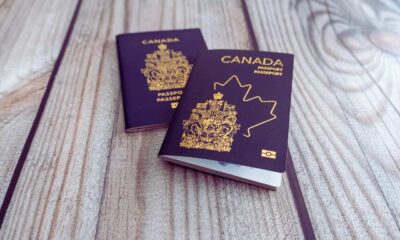Immigration Announcement
IRCC’s Francophone Immigration Plan in Latest Immigration Levels 2024-2026

In the latest news, Canada’s Immigration Levels Plan for 2024-2026 unveils a strategic focus on welcoming French-speaking permanent residents (PRs). This move by Immigration, Refugees and Citizenship Canada (IRCC) not only underscores the country’s commitment to linguistic diversity but also sets the stage for a changing era in the Francophone immigration Plan.
Francophone Immigration Plan 2024-2026 Highlights
The Immigration Levels Plan 2024-2026 outlines an ambitious agenda. In 2024, Canada is set to embrace the arrival of 26,100 new immigrants who are fluent in French, with the exception of the province of Quebec.
Moving ahead, the plan aims to embrace 31,500 French-speaking PRs in 2025 and a staggering 36,000 in 2026. This annual release guides the admission of new PRs, categorizing them into economic, family, and refugee/humanitarian classes.
A notable revelation is the projected rise in admissions for “overall French-speaking Permanent Resident Admissions outside Quebec” by 4,500 in 2026 compared to the previous year. This emphasizes Canada’s acknowledgment of Quebec’s unique immigration rules and its commitment to fortifying French-speaking communities nationwide.
Why the Shift?
The strategic report “An Immigration System for Canada’s Future” unveils IRCC’s mission to enhance the vitality of Francophone minority communities, extending beyond Quebec. The plan includes developing a new Francophone Immigration Policy and setting ambitious targets to boost French-speaking PR admissions continually.
Recent Success and Future Commitments
Immigration Minister Marc Miller’s affirmation during National Francophone Immigration Week highlights Canada’s recognition of the contributions made by French-speaking immigrants to the country’s cultural, demographic, and economic richness. The Action Plan for Official Languages 2023-2028 signifies the government’s dedication, to allocating funds to promote and support Francophone immigration both domestically and abroad.
Ottawa’s financial support of $85,000 into Think-Tank for the Observatoire en immigration francophone au Canada at the Université de l’Ontario français signifies a proactive step in studying and understanding francophone immigration dynamics. The Observatoire en immigration francophone will play a pivotal role in unifying efforts to understand and support francophone immigration.
IRCC has also shown commitment to spending $18.5 million to promote and recruit support for Francophone immigration globally. An additional $50 million is earmarked to strengthen the Francophone integration pathway, facilitating settlement and integration for newcomers.
Canada’s immigration department has successfully incorporated French-language proficiency into the Express Entry system, granting additional Comprehensive Ranking System (CRS) points to candidates, thereby increasing their chances of receiving an Invitation to Apply (ITA).
Canada’s commitment to fostering Francophone immigration represents a monumental leap towards a more diverse, inclusive, and vibrant society. As the country positions itself at the forefront of linguistic diversity, this bold move is not just a game-changer; it’s proof of Canada’s unwavering dedication to building a future that celebrates and embraces the richness of its linguistic landscape.
























